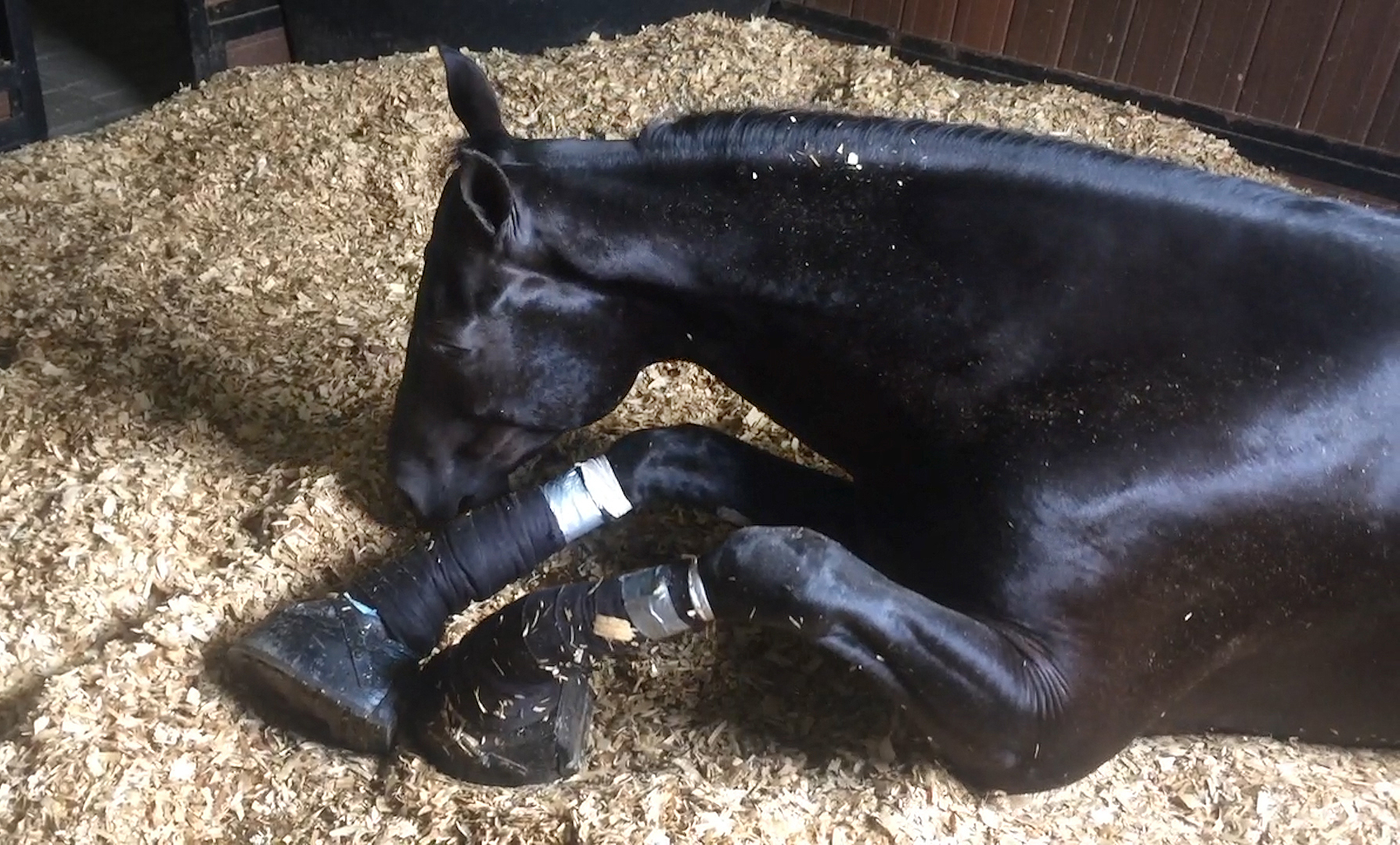By Kitty Block and Sara Amundson
Our secret investigations have documented the cruel realities of horse soring, a mutilation intended to create an exaggerated gait in show horses known as the “Big Lick”. HSUS
Very good news from a federal courtroom on a long-running fight for horses: Last Friday, the United States Court of Appeals for the District of Columbia Circuit ruled that the Department of United States Agriculture had illegally withdrawn a 2017 rule intended to fix weak agency regulations that allowed horses to persist in Tennessee’s walking horse industry. Along with several individual plaintiffs, we filed a lawsuit challenging the USDA’s withdrawal of the rule, which had been finalized and made public by the agency, and won.
For many decades, humanitarian organizations have attempted to eliminate sores – the intentional infliction of pain on a horse’s legs or hooves to force the animal into an unnatural, exaggerated gait. But it has been hard to achieve, despite hard-hitting investigations and revelations, a damning audit by the agency’s own inspector general, bipartisan support for strong legislation in the U.S. Congress for about a decade, and the pressure we and others have exercised. on the USDA and its enforcement of the Horse Protection Act of 1970. This law and the agency’s regulations under it contain loopholes that have allowed dishonest parties within the walking horse community to continuing to hurt horses while chasing ribbons at shows and competitions – loopholes that must be closed if we are to achieve the intended goals of the law and finally stop the soring.
We thought our own efforts to strengthen these regulations had succeeded when, in the final weeks of the Obama administration, the USDA announced a final rule to update its enforcement protocols under the Horse Protection Act. The 2017 rule had significant changes to protect horses of Tennessee’s walking and racking horse breeds from sores, including a ban on the use of “stacks” (heavy platform shoes), chains and d other cruel and painful devices and practices intended to produce the showring gait called the “Big Lick”.
Fighting the soring horse requires vigilance to make sure people are doing their job to uphold the law. The 2017 rule also eliminated an industry inspection program that the USDA inspector general said was not working and should be abolished. This regime, which the agency still relies on, places enforcement responsibility on some of the very parties with an incentive to perpetuate pain. The 2017 rule removed this failing self-monitoring system from the industry and replaced it with a network of independent third-party inspectors who would be licensed, trained and supervised by the agency.
The Obama administration submitted the signed final rule to the Office of the Federal Register. This office published the rule for public inspection but did not publish it in the Federal Register until Donald Trump took office as president. His incoming administration withdrew the rule without explanation. Then nothing happened. No application of the 2017 rule, and no reform, for four years, blocking the progress of this work to protect horses against aches.
In the lawsuit, we argued that the USDA’s withdrawal of the rule violated procedures that agencies must follow under federal administrative law. While the district court sided with the agency and dismissed the lawsuit, on appeal the DC Circuit found that the USDA violated federal law by withdrawing the rule without notice and comment. required by federal law when agencies repeal final rules. The case was returned to the trial court for further processing.
In Congress, in the courts, in the media—in short, wherever we need to take the fight—we have for many years pushed for strong enforcement of the federal law against hardening of horses. As we await regulatory changes resulting from our successful lawsuit, we continue our efforts to pass legislation to stop soring through the Prevent All Soring Tactics (PAST) Act. This bipartisan bill (HR 5441/S. 2295), co-sponsored by more than half of the House and Senate, would codify key reforms to the 2017 rule and toughen penalties, putting an end to the scourge of plagues for good.
Surprisingly, there is an irresponsible faction in the movement that is pushing an alternative Trojan to the PAST, recklessly and naively. They negotiated their replacement bill with walking horse industry interests that celebrate the “Big Lick” show move. They don’t want real reform to end the pain; they want to see it flourish. Their bill would weaken the Horse Protection Act, bolster the industry’s failing self-policing system and require inspection protocols designed to prevent infractions from ever being cited. This would allow continued use of the devices integral to the soring. Basically, this misleading surrogate would prevent the agency from implementing the regulatory changes needed to bring the protections originally promised by the Horse Protection Act to wound victims.
The soring horse is one of those cruelties that drag on, defying gravity in a moral sense if you take into account the strong public opinion against it. But it is also an example of incompleteness in the political sphere. Congress set out to abolish soring half a century ago, but failed, even as one administration after another failed to complete the task. Horses in need of protection should wait no longer. And as we have proven by our trial, neither should we.
Sara Amundson is chair of the Humane Society’s Legislative Fund.
Categories
Equine, public policy (legal/legislative)

